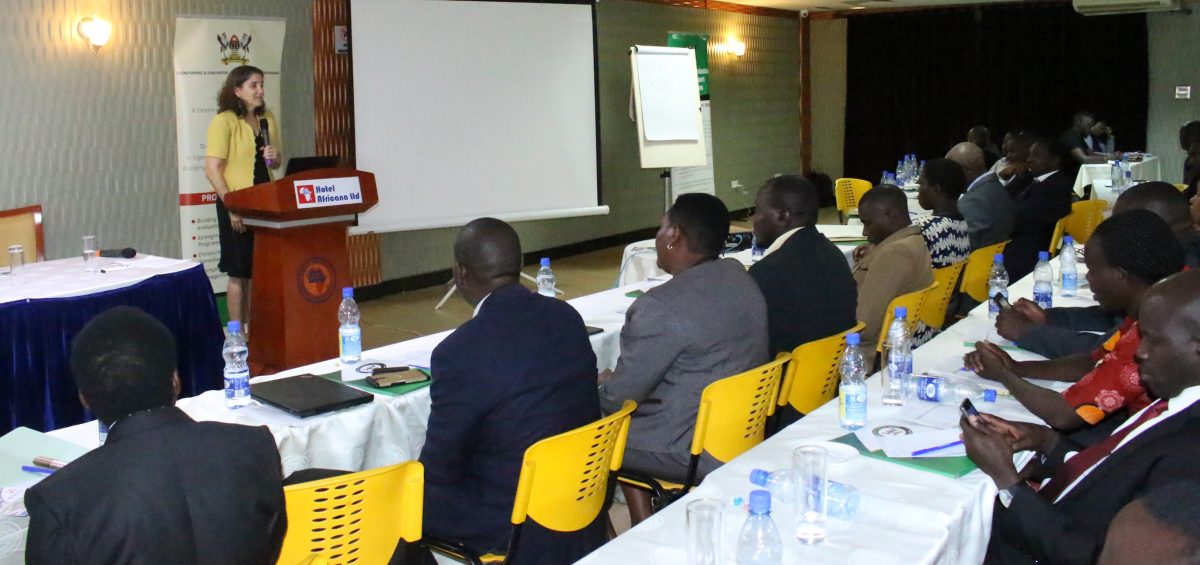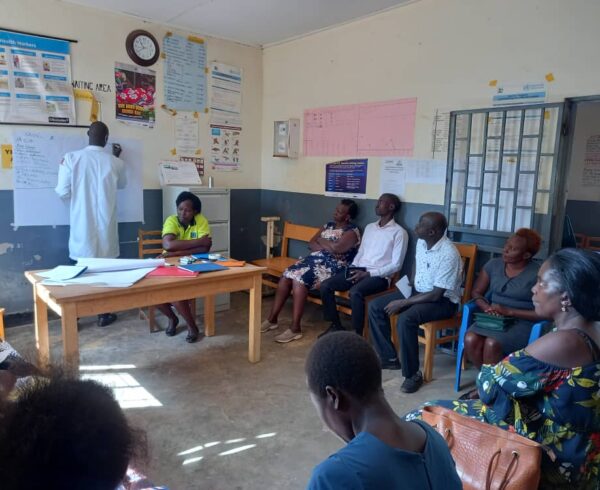“The METS Program is well on track because we need quality data, we cannot invest in programs with bad data because this would be discouraging to our funders,” Dr. Jennifer Galbraith from CDC. This was during the official dissemination of the Governance, Leadership and Management (GLM) and the Monitoring and Evaluation (M&E) Fellowship Programs.
The fellowship programs are hosted by the Makerere University School of Public Health’s Monitoring & Evaluation Technical Support (METS) Program in partnership with the Ministry of Health. METS focus is on reinforcing the National and district health system capacities in M&E and GLM for HIV/AIDS programs.
The two fellowship programs are aimed at re-enforcing M&E and GLM capacities of District Health Teams to be able to effectively plan, manage and report quality HIV/AIDS data. The M& E 6-month fellowship program graduated 44 Fellows from 22 districts and it targeted district biostatisticians and HMIS focal persons and the fellows who implement hands-on M&E projects in their districts for improving data quality and utilization.
The GLM 9-month Fellowship graduated 21 fellows from 7 districts and it was designed to enhance capacity of District Health Teams in Governance, Leadership and management as a means of improving efficiency and effectiveness in the delivery of health services. It targeted DHOs, HIV Focal Persons and health facility in-charges. The fellowship programs required the Fellows to spend 25% in a face to face session and 75% in their districts through their everyday work.
According to Dr. Simon Muhumuza the coordinator of the M&E Fellowship, focal persons at the district possessed inadequate data management skills which made it hard to understand the progress in HIV programs. ”This meant that programs were not reporting quality data, those in the need of the services were not getting them because they were not being planned for,” Uganda has been commended for her efforts in the fight against HIV and AIDS, as a result, the epidemic control target as required by the Global Aids Coordination office was increased the number of people who get tested for HIV, those who enroll for treatment and those whose who achieve viral suppression from 90% to 95% targets.
According to Galbraith, METS was well on track of continuous data quality improvement and had the challenge to do more to ensure that PEPFAR targets were met. She called on the Fellows to share the knowledge learnt basing on the ideal policy of “Each one Teach One”.
Galbraith added that recent interventions through a national survey by the Uganda Population-base HIV Impact Assessment (UPHIA) on prevalence, treatment, viral suppression among people living with HIV, showed that the statistics of 1.3m PLHIV was over estimated by 10-15% and that this spoke to the need of clean data. “Once clean data sets are achieved, appropriate services will be delivered up to an individual in their household and the epidemic will have been controlled,” said added.
Dr. Shaban Mugerwa who represented the Director General of health services at the Ministry of Health, called on the fellows to demonstrate the acquired skills within their workplaces to prove that without data, proper planning was impossible. He urged them to demonstrate ownership of the programs at the districts and to ensure that innovations they demonstrated during the training were implemented to help the Ministry get accurate, timely and complete data in HIV Control programs.
Evelyn Akello, Program Manager speaking on behalf of the Principal Investigator METS, noted that her biggest fear was that the district staff, now at a better advantage in terms of training and qualifications, would be identified by other employers and this would leave a gap at the districts. To avoid this, she emphasized the need to have succession plans and expose members of the DHTs to the key issues of the Fellowship Programs.
The ceremony was attended by representatives from Infectious Disease Institute, Mildmay Uganda and Baylor Uganda which are the Implementing Partners in the districts from which the Fellows were selected. Others in attendance were 15 District Health Officers and 2 Chief Administrative Officers; from Kamwenge and Mubende districts.
Dr. Julius Balinda, DHO Kyengegwa noted that GLM functions are generally weak at the districts hence the Fellowship was very relevant. He added that despite the heavy schedules that most DHOs had, he was glad that they dedicated time for the Fellowship and this goes to show how valuable it was to them. He further challenged the Fellows to pass the knowledge obtained on to the rest of the DHTs and hoped that METS would carry out more of these training for others that had not got the opportunity to attend.
Mr. Siraj Muyombya the Bio-Statistician of Butamba said that the Fellowship Program was very practical, and it enabled them to share and learn of different experiences. He was glad to report that the knowledge he had gained from the program had enabled him to write and win a grant worth UGX 30m for Butambala district.



